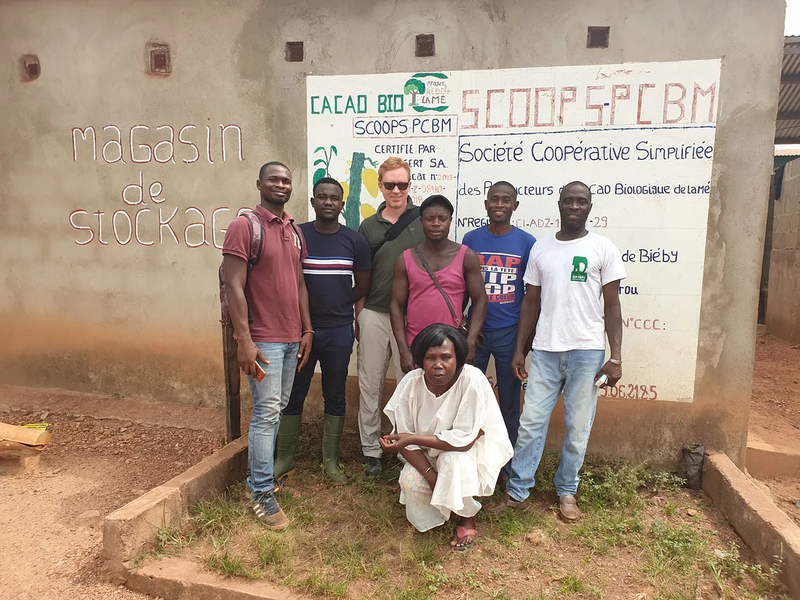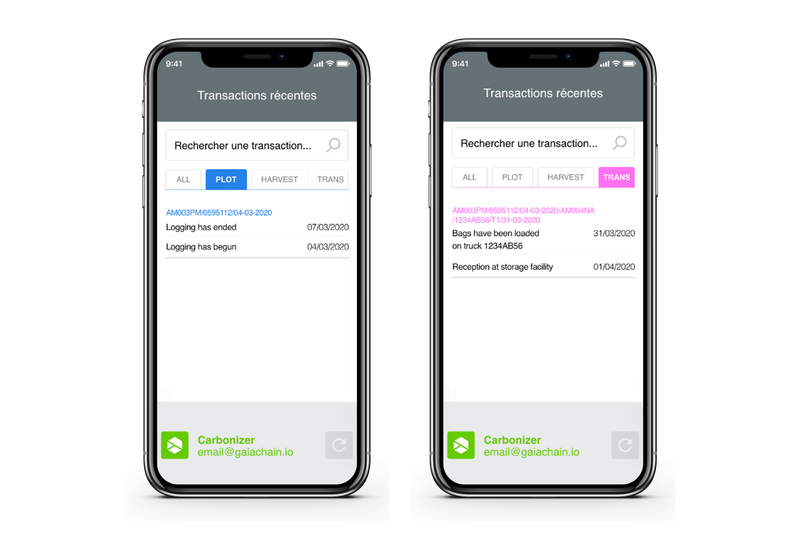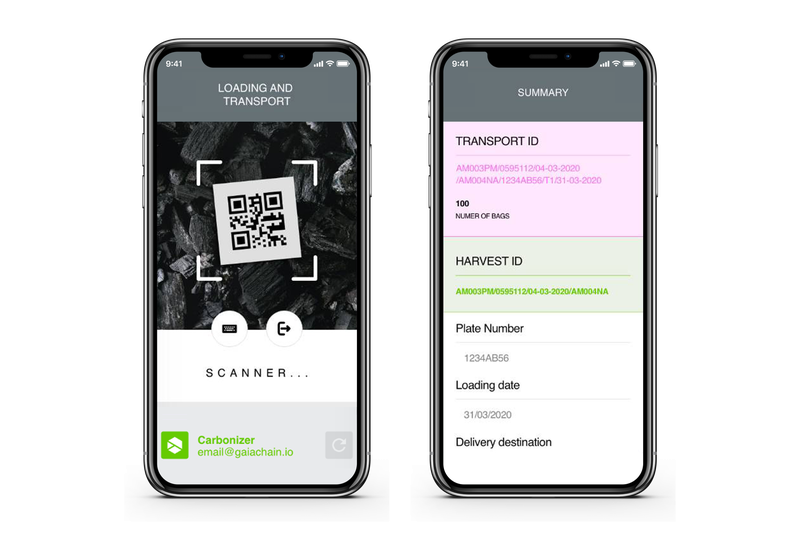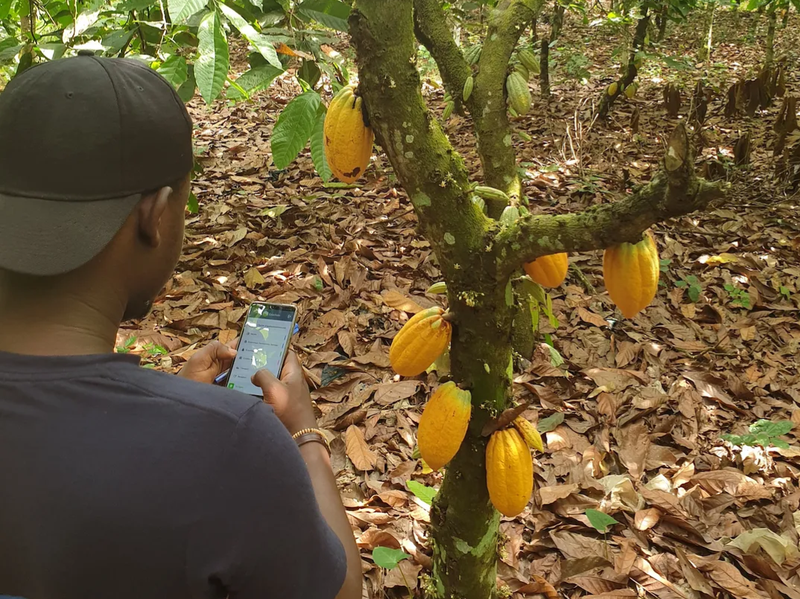Introduction
In 2021, we partnered with Gaiachain Lab to develop an original and sophisticated monitoring software for charcoal and cocoa producers in the Ivory Coast. The unending frauds, followed by inadequate resource traceability were a real issue in this region. Since we perceive blockchain as far more than just a fancy buzzword or cryptocurrency's backbone – we secured our C++ and Qt-based custom software with Algorand’s immutable nodes.
Interested in details? Here is how this project went.
In this article:
Introduction & Client's Background | Gaiachain
Gaiachain is a London-based startup, founded in 2018, that focuses on payment and traceability solutions in the context of PES (payment for ecological services).
A grant from the Algorand Foundation, received in 2021, allowed them to jumpstart a completely new project. They wanted to enhance sustainable resource management in southern African regions – focusing purely on charcoal and cocoa production monitoring in the Ivory Coast.
This was also the moment when they decided to partner with us, Milo Solutions, as their CTO.
Gaichain | Research & Collaboration
In 2021, we partnered with Gaiachain Lab to develop an original and sophisticated monitoring software for charcoal and cocoa producers in the Ivory Coast.
The unending frauds, followed by inadequate resource traceability in this region, disrupt buyers’ ethical sourcing verification and hinder fair market access for local providers.
The main goal was simple:
Gaiachain aimed to improve resource traceability from plantation to market, ensuring product ethics, authenticity, and fair pricing.
That is why we started the work by conducting in-depth on-site research, focused on understanding the entire production lifecycle of charcoal and cocoa.

This required our team, including Milo Solutions CEO, Kacper Gazda, to take a field visit to locations like Abidjan (Ivory Coast major city), to gather all the necessary insights.
Kacper (Milo Solutions CEO) and Eulalie (Gaiachain’s CXO) followed the charcoal at every step of the journey, from forest to market. They set the geolocation markers, established data entry points, and verified basic information.
From harvesting the wood, through chopping and carbonization into large kilns (ovens) to charcoal creation – we looked for useful data on production methods, logistics, and local market dynamics.
The same process was repeated by Brad Mulley (Founder and Gaiachain CEO) regarding the cocoa supply lines.
We had to investigate the charcoal supply chain to understand the real-world challenges and implications of using a blockchain-based app for traceability.
At this point, our team also studied the fraud scenarios and inefficiencies, and caveats present on the market.
As always, gathered insights turned out to be invaluable during the system development phase.
Main issues we established included:
- Lack of transparency – Without clear visibility into the supply chain, it was easy to manipulate data and conceal fraudulent activities.
- Weak regulatory oversight - Insufficient enforcement of regulations allowed illegal practices to go unchecked.
- Manual record-keeping - Reliance on paper-based or manual systems was a leading cause of errors and deliberate falsification of records.
- Inconsistent product tracking – Inadequate systems for tracking the origin and movement of goods made it difficult to verify authenticity and detect fraud.
- Middlemen exploitation – Multiple intermediaries in the supply chain led to the exploitation of local producers and transaction manipulation for personal gain.
Gaiachain | Design & Development

The better information flow within the supply chain, the more confident traders, manufacturers, and consumers can be about the product.
Our system placed the emphasis back on the local farmers and producers.
As Gaiachain’s technological partner (CTO), we crafted two solutions (one for each resource type), that massively enhance transparency, prevent fraud, and empower local producers.
That is why we decided to develop a low-tech solution, designed for off-grid and rural locations.
We went for QR code scanning on product packages and unique IDs generation – based on package specifics such as size, type, or producer geolocation coordinates.

Establishing a digital, fraud-resistant, and decentralized system was also our priority.
Initially, we built the project’s backend infrastructure on HyperLedger IBM.
Eventually, we transferred and secured all the processes in custom-built Algorand nodes – ensuring data security and immutability.
Throughout our solution, we granted the users verifiable data on the origin of resources – ultimately fostering a more transparent and equitable supply chain.
Furthermore, we ensured that our mobile application is available in both English and French languages, facilitating seamless communication and usability across diverse stakeholders.
This accessibility proved crucial in fostering trust and compliance within the supply chain.
Once finalized, both the Charcoal Trace and Cocoa Trace apps allowed users to enter identification data at every point of the supply chain and give buyers confidence that the charcoal they are purchasing is from a legal source.
All code is public and available at the Gaiachain GitHub page
Gaiachain | Results & Impact
Our solution revolutionized the monitoring and tracking of charcoal and cocoa resources.
Local producers can benefit from enhanced market access and fair pricing, empowered by transparent supply chain data.
Moreover, pharmaceutical companies and other stakeholders can easily verify and monitor the origins and ethical standards of their supplies, bolstering their sustainability credentials.
Halting, preventing, or reversing ecosystem degradation was no easy task, however, satellite imagery coupled with a unique identification method enabled the farmers to digitally prove their sustainable credentials.

As for the future, we want to make selling data to companies with zero-deforestation commitments possible through our app.
Such a marketplace, based on blockchain technologies, would strongly incentivize both climate-smart agriculture and data provision, stabilizing the local supplier’s situation.
Gaiachain | Conclusions
We believe that a blockchain-based traceability app, combined with rigorous governance and on-the-ground practices, can massively help local producers as well as big corporations.
This is our take on long-anticipated progress towards a better future.
As Milo Solutions, we successfully delivered a robust technological solution that met Gaiachain's objectives of transparency and sustainability in resource management.
By leveraging blockchain technology and developing user-friendly mobile applications, this project exemplifies innovative approaches to addressing complex challenges in the charcoal and cocoa industries in Africa.
Interested in more of our software success stories?
Feel free to check out some of the following articles we provided below:



![[August'25 Update] Top Free AI Models for Business | Automation and LLM's in 2025](/media/images/Img_1.format-png.width-72.webpquality-90.png)

